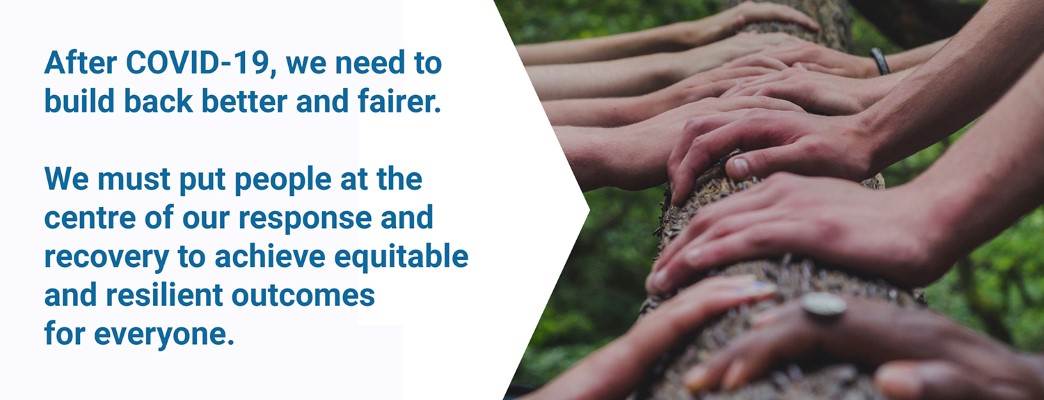Secretary-General, President of the General Assembly, Excellencies,
The 2020 HLPF has made it very clear: we are living in a time of global crisis.
The COVID-19 pandemic is not only a threat to our health, but a human crisis of multiple dimensions.
After a week of expert-level discussions, I was struck by a feeling that perhaps many of you share:
As the virtual HLPF events were unfolding in real time all around the world, as we connected and made our voices heard.
As we were seen onscreen from our home countries – and even from within our homes – I wondered, can this virtual HLPF somehow bring us closer together? Can we collectively implement solutions, from a distance?
What have we learned?
We know that we are not on track to achieve the SDGs by 2030, and that the COVID-19 pandemic has set us back immeasurably.
We understand that we must respond to COVID-19 in ways that are aligned with the 2030 Agenda, if we hope to accelerate and maintain social and economic progress.
We have heard from many experts how the current crisis is likely to push tens of millions of people back into extreme poverty and hunger.
We are aware that this crisis is impacting the livelihoods of half of the global workforce.
We know that the poorest and the most vulnerable people are most at risk right now.
And we know that the most vulnerable communities and least developed countries need the most support.
Global leadership must be strengthened in all areas.
I believe that after this week, we must individually and collectively galvanize our resolve to work together better, and ensure that this decade ushers a new era of peace and prosperity for all.
Recovering and building back better will require cooperation, collaboration and dialogue among multiple stakeholders to ensure no one is left behind, including the most vulnerable.
Let us now put our knowledge into practice!
Building back better after COVID-19 means taking action in areas that will have the greatest impact on the SDGs:
Respond to economic shocks, share economic benefits, and address developing countries’ financing challenges.
Launch initiatives including relief packages, stimulus packages, and revamped social protection programmes to mitigate the adverse impacts on highly affected groups and sectors.
Strengthen health systems and deliver universal health care for all.
Empower all women and girls, and ensure that their human rights are protected and fulfilled.
Heed the voices of the youth, for they are the future.
And take urgent and decisive actions to halt the reversal of gains made by the most vulnerable groups of countries.
Excellencies,
Together, we can share information and identify ways to fill knowledge and data gaps, scale up actions, and address context-specific conditions.
We must find the way to leverage political will, to ensure evidence-based decision-making.
We can also mobilize accelerated action for a global transition to clean energy.
Shifting to nature-based solutions will build resilience and reduce risks in areas of health, food security, economic growth and livelihoods.
They can also transform economic systems to sustainably consume and produce, manage increased disaster risks, mitigate the effects of climate change and help to halt biodiversity loss.
These are some of the keys to successful transformation.
The recovery phase from the pandemic represents an opportunity for all levels of government to build back more inclusive, equal, resilient and sustainable societies.
Finally, we have learned that there is significant momentum in an increased number of countries around the notion that reverting to the pre-COVID economy is not desirable.
Excellencies,
Holding the HLPF in the midst of the COVID-19 pandemic has revealed new innovations and forms of collaboration.
I would like to close by commending all who have participated and contributed to the online discussions thus far; and to congratulate the 47 countries presenting their Voluntary National Reviews this year.
We have learned much, and we have much more to learn.
Armed with the knowledge we have gained from the thematic discussions last week, and the experiences of the VNR countries, it is my hope that this HLPF will succeed in its efforts to accelerate actions in the decade ahead, and ultimately realize the vision of the 2030 Agenda.
Thank you.
